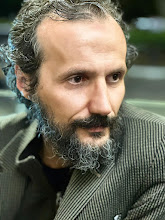10 Eylül 2009 Perşembe
THE SIXTY-EIGHTH DISCOURSE On the words of Allah (Exalted is he): “Every day He is about some business.”
When God grants the prayer of a servant of His and gives him
what he asks for, His own purpose does not thereby become frustrated, nor
does it affect the writing of which the pen has become dried (that is the final
decree of Providence) nor that which has already occurred to the Divine
knowledge. On the contrary, such a prayer is in conformity with the object
of the Lord and occurs at the right time. So the acceptance of the prayer and
the fulfilment of the need take place in due time and in accordance with a
set plan which the Destiny has arranged beforehand in the beginning of
time, and which have been waiting to see fulfilment at the appointed hour.
This is what the people of knowledge have said in explaining the Divine
word: Every moment He is in a state of glory (55:29).
This means that God drives the allottments of Destiny towards
their appointed times. Thus God does not give any person anything in this
world by mere prayer proceeding from him, and similarly He does not turn
away anything from him through mere prayer; and it is said that the saying
of the Holy Prophet to this effect means that the decree of fate is not
averted except by that prayer with regard to which it is decreed that it will
so avert such a decree. In the same manner, no one will enter paradise in
the life hereafter through his good deeds alone but by the mercy of God.
However, the servants of God will be given ranks in the paradise according
to their deeds.
There is a saying of Lady Ayesha (may God be pleased with her)
that she asked the Holy Prophet (peace and blessings of Allah be on him);
"Will anyone enter paradise through his good deeds alone? The Holy
Prophet (peace and blessings of Allah be on him) replied: "No, but by the
mercy of God."
Then she said, "And not even you?"
So he said, "Yes, not even I, unless God covers me by His mercy." And
with this he placed his hand on his head.
He did this to indicate that no one has any right against God, nor is
He under any obligation to fulfil any promise. He rather does what He
wills, chastises whom He wills, forgives whom He wills, shows mercy on
whom He wills, bestows favour on whom He wills, and He has absolute
power to do whatever He likes. He cannot be questioned with regard to
what He does, whereas His servants will be questioned, and He gives
sustenance to whom He wills by His favour and mercy, and withholds His
favours from whomever He likes in exercise of His justice. It cannot be
otherwise, since the creation from the Divine throne down to the very
bottom of this earth, which is at the seventh layer downwards of this
planet, is in His possession and is His creation. There is no master for them
except Him and no creator for them besides Him. He has asked: Is there
any Creator besides Allah! (35:3) And He has also asked. Is there a god
with Allah! (27:63). And He has further said; Knowest thou anyone equal to
Him? (19:65)
He also says:
Say: O Allah! Owner of the Kingdom, Thou givest the kingdom to
whom Thou pleasest, and takest away the kingdom from whom
Thou pleasest, and Thou exaltest whom Thou pleasest and abasest
whom Thou pleasest. In Thine hand is the good. Surely, Thou art
Possessor of power over all things... Thou givest sustenance to
whom Thou pleasest (3:25,26)

